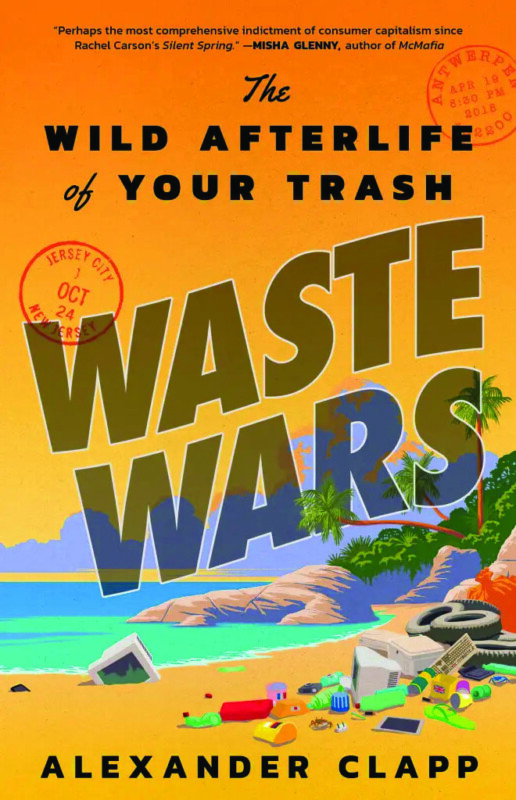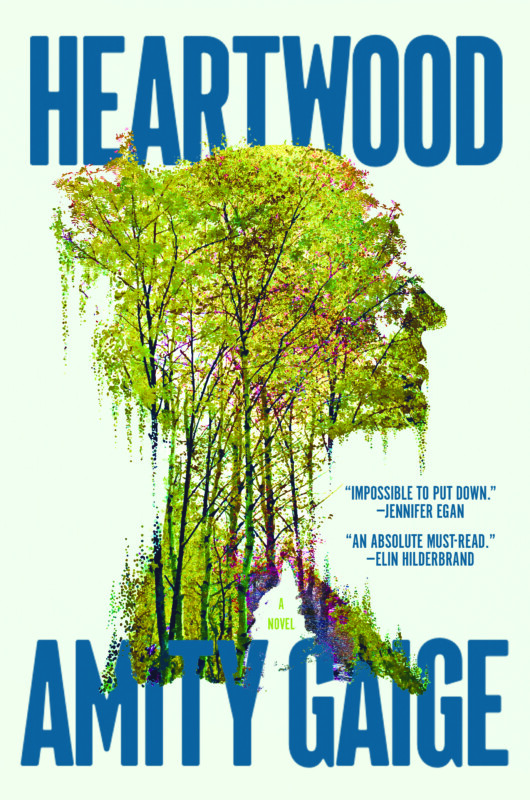Waste Wars, by Alexander Clapp (Little, Brown and Co., 341 pages)
When you toss a plastic water bottle in a recycling bin, you’re saving the Earth — or so we’ve been told for decades. But in recent years a more disturbing story has been emerging, with evidence that much of the stuff in our recycling bins is not being recycled but is being shipped, at significant financial and human cost, to developing nations.
In Waste Wars, journalist Alexander Clapp goes Dumpster diving for the truth, traveling the globe to witness what he calls “the wild afterlife of your trash.”
It’s a sobering story that’s being compared to Rachel Carson’s Silent Spring, which in 1962 launched the environmental movement with its examination of the devastating effects of pesticides. But Waste Wars is not so much about how America’s garbage is destroying us, but about how it’s trashing other countries.
Clapp’s introduction includes an astonishing statement: “Since the early 1990s, when your discarded Coke bottle first emerged as a major object of global commerce, China had been the recipient of half the plastic placed into a recycling bin anywhere on Earth.” In another decade, he writes, “America’s biggest export to China was the stuff Americans tossed away.”
But China got fed up and stopped accepting the world’s plastic, creating chaos in the global trash trade. “Within months, Greek garbage started surfacing in Liberia. Italian trash wrecked the beaches of Tunisia. Dutch plastic overwhelmed Thailand.”
The richest nations soon realized that the poorest could be counted on to take their waste — not just plastic and the remains of incinerated garbage (all that ash has to go somewhere) but also things like sewage sludge. The garbage and waste shipped to other countries is sometimes processed and sometimes repurposed, but often buried or dumped anywhere a truck driver thinks he can get away with it. In some areas sewage sludge has been broadly distributed and then paved over with “roads to nowhere.” In one area of Kenya, there are acres of six-story-high trash mountains seeping a poisonous soup that mosquitoes won’t breed in.
These sorts of arrangements have sometimes been brokered by government officials with no say by the citizens affected. In Guatemala in the early 1990s, for example, 200 families were “relocated” from their villages to make way for the processing of sewage coming from Miami, Galveston and other U.S. cities. In Turkey, a Kurdish farmer watched a truck stop outside his citrus groves, dump a load of garbage and light a match, the resulting fire nearly destroying his livelihood in the coming years.
Then there’s the e-waste. Clapp travels to a place in Ghana known as Agbogbloshie, which is a slum in which much of our electronic waste winds up. Perhaps, he says, your first cell phone and Game Boy, your DVD player, your college laptop, perished here. He writes about “enterprising young men in Ghana who have spent their lives rummaging through the piles of keyboards, desktop monitors, and smartphones that waste brokers in rich countries have shipped to Agbogbloshie; they are seasoned at restoring these busted electronics back to life — and, on occasion, using them to conduct epic long-range fraud against residents of the countries that sent them.”
At the same time, he writes, Agbogbloshie has become “a byword for ecological ruin.” Chicken eggs there contain high levels of chemical compounds, making them “probably the most poisonous on Earth.”
And yet the enterprise provides jobs. Clapp describes what he calls a “de-manufacturing line” — young men who sit for eight or nine hours a day dismantling and smashing trash: “old ceiling fans, motorcycle mufflers, speaker systems.” It is ironic, he observes, that some of the discarded objects being destroyed contain the world’s most advanced technology and yet it is backbreaking human labor — “of an almost unimaginably archaic kind” — doing the destroying.
Unfortunately, the problems Clapp uncovers have no easy fix, driven as they are by consumer demand for products that don’t just become waste themselves but produce waste, are literally wrapped in waste, every step on the way to your house, from their production to their packaging to the cash-register receipt you receive.
The book sometimes feels a bit like a lecture in which Clapp is chastising each of us for the contents of our closets and refrigerators. And yet we needed that Game Boy, didn’t we? Yes, water bottles are bad, we get it, but for many of us, so is our tap water. It’s easy to see the problem, not so easy to see the solution. Unfortunately, Waste Wars offers no way out of the mess we are in.
At the beauty store where my youngest daughter works, they recently tried to reduce plastic bag consumption by discontinuing plastic bags and offering a paper bag for 10 cents. They had to return to plastic bags within a few months because customers were so angry, they would storm out of the store.
Other countries are being more hard-nosed. In Indonesia, which is said to be the third largest contributor to plastic in the ocean (behind China and India), stores in Jakarta banned single-use plastic bags five years ago, levying a fine that amounts to $1,800. Dubai is building an enormous incinerator that it says will burn what amounts to a thousand trucks full of trash every day. But Indonesia also has plastic being sent there from other countries, and incineration has environmental costs of its own.
Depressingly, Clapp admits at one point, “As long as plastic keeps getting physically diverted by those who consume it the most, the farther from public concern — and political action — it is likely to remain.” Waste Wars is an eloquent and deeply researched call to action, even as it’s frustratingly unclear about what that action should be. A —Jennifer Graham






